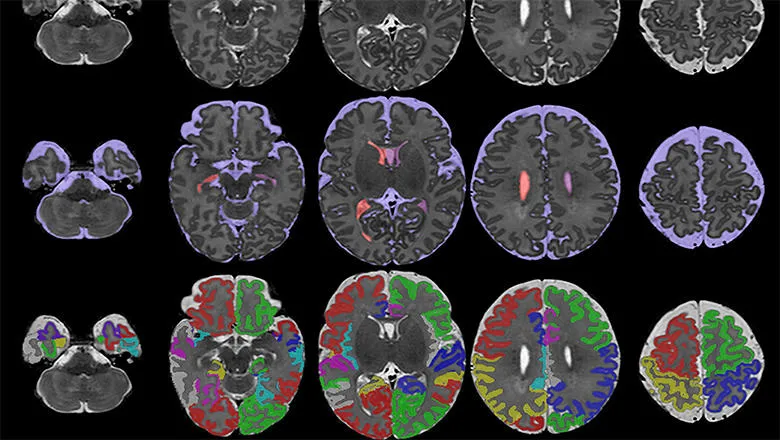
Newborn baby brain scans will help scientists track brain development
Scientists from King’s have published ground-breaking scans of newborn babies’ brains which researchers from all over the world...
06 November 2018
Researchers, clinicians and engineers from King’s College London are pioneering a software system called EpiNav developed in hopes of making brain surgery safer and easier.
Epilepsy, a condition in which abnormal brain activity can cause life-threatening seizures, affects around half a million people in the UK. Anti-epileptic drugs are used to manage symptoms, but up to 30% of patients with focal epilepsy don’t respond. For these patients, it is possible to undergo surgery to remove the part of the brain that causes seizures, but it is a far riskier treatment option and doctors must plan very carefully.
Researchers, clinicians and engineers from King’s College London, University College London and the National Hospital for Neurology and Neurosurgery are pioneering a software system called EpiNav developed in hopes of making brain surgery safer and easier.
To treat epilepsy with surgery, doctors first need to find out exactly where the seizures are coming from. This involves a complex procedure that implanting electrodes into the brain to measure electrical activity. These electrodes need to be positioned into the brain without damaging any vital areas, like those that control motor functions, which affect speech, vision, and movement.
In a recent episode of BBC’s Trust Me I’m a Doctor, Gabriel Weston met with Professor Sebastian Ourselin of King’s and Professor John Duncan of the National Hospital for Neurology and Neurosurgery to learn more about how EpiNav (which stands for epilepsy navigation) tackles these challenges of uncertainty during brain surgery. By using CT and MRI scanning technology combined, the EpiNav software builds incredibly detailed 3D maps that allows surgeons to follow safe routes in the brain, in real time, to implant each electrode.
Following many years of development EpiNav is now being used as the primary tool for surgery planning at the National Hospital for Neurology and Neurosurgery. However, the team are taking this a step further and hope to incorporate the use of a robotic guidance system, currently under a randomised control trial.
In half of the surgeries, the electrode placement is performed manually by surgeons and in the other half of surgeries, the EpiNav data is passed to a robot which assists the surgeons by lining up the precise trajectory for each electrode. The team aspires for EpiNav to be integrated into operating theatres in the UK, and hopes to have even wider impact on other areas of neurosurgery like brain tumors and Parkinson’s disease.
Watch a clip of the programme here.
King's College London has a long and proud history of serving the needs and aspirations of society. We are committed to the UN Sustainable Development Goals (SDGs) as a university, and we use them as a framework for reporting on our social impact. The SDGs are a set of 17 goals approved by the 193 member states of the United Nations (UN) which aim to transform the world by 2030. This research supports SDGs 3 and 17.